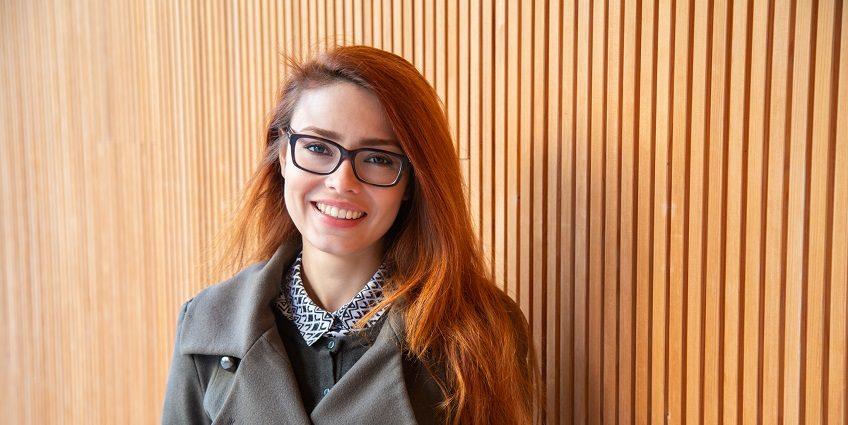 In English
In English Are highly-skilled migrants “invisible” in cities? Research project by Nilay Kilinç
Urban Academy partner cities Espoo, Helsinki and Vantaa are funding postdoctoral researcher posts in urban studies at Aalto University and University of Helsinki for the period 2018-2023. The research themes are selected in collaboration with the cities so that they support strategic development and planning of the cities.
Urban Academy asked researchers to share their thoughts about their research and interests. First in turn is Nilay Kilinç who has a Master’s degree in European Studies at Lund University (Sweden) and PhD in Migration and Mobility Studies from University of Surrey (the UK). Nilay is working with the research theme “Urban Inequality” and focusing on questions of immigration.
What are you studying and what are the main characteristics of your research?
My research explores the social and professional networks of highly-skilled Turkish migrants in three Nordic capitals; namely Helsinki, Stockholm and Copenhagen. The research has a mixed-methods approach, combining interviews and surveys. With the comparative research design, one objective of this research is to illuminate these three cities’ push-pull factors for the highly-skilled migrants.
In my research, the following questions about highly-skilled migrants are explored: how can they feel more ‘at home’ in a foreign country and boost their wellbeing and career goals? What are their local and transnational ties and relations like with the older Turkish diaspora communities, local society and other migrant groups? What are the spaces in the city where they can build and maintain relations based on their professional interests, lifestyles and hobbies other than their ethnic, national and religious collective identity inclinations?
What are your current special interests or sources of inspiration? What has inspired you recently?
As a highly-skilled Turkish migrant woman who has lived in various European countries for the last 10 years my research topic is close to my heart. Other than my research, I am working on my documentary project which depicts the life of a Turkish man who was raised in Germany, but got deported to Turkey. In my free time, I am exploring my new home Helsinki. I always have my camera and notepad with me during my long walks where I observe, reflect and be in the moment.
What kind of impact do you wish that your research has on the society?
With my research, I would like to give voice to highly-skilled migrants who are often ‘invisible’ in their societies. I aim to highlight that limitations and urban inequalities can be experienced by highly-skilled migrants as well; hence it will be important to find out ‘cultures of rejection’ and ‘cultures of inclusion’. The study will hopefully create a discussion on the ways in which local contexts shape living in diversity in parallel to issues like segregation, migration, urban and neighbourhood policies and multiculturalism.
For Helsinki region, I think it will be vital to deepen the knowledge about the highly-skilled Turkish residents as Finland is becoming a popular destination for Turkish highly-skilled migrants, while the migratory ties and relations are rather young between the two country.
Can you name a city or cities that have played important role in your life? What is your favorite city in the world?
In the last 10 years, I have lived in 7 different countries and 10 cities. I believe, they all shaped me in a certain way. But in my heart, there is no other city like Istanbul, my beloved hometown. Istanbul is so magical, beautiful, bold, uniquely messed up, contradictory and generous with history, culture, architecture, and food – it always keeps inspiring me.
Text edition: Pietari Suomela